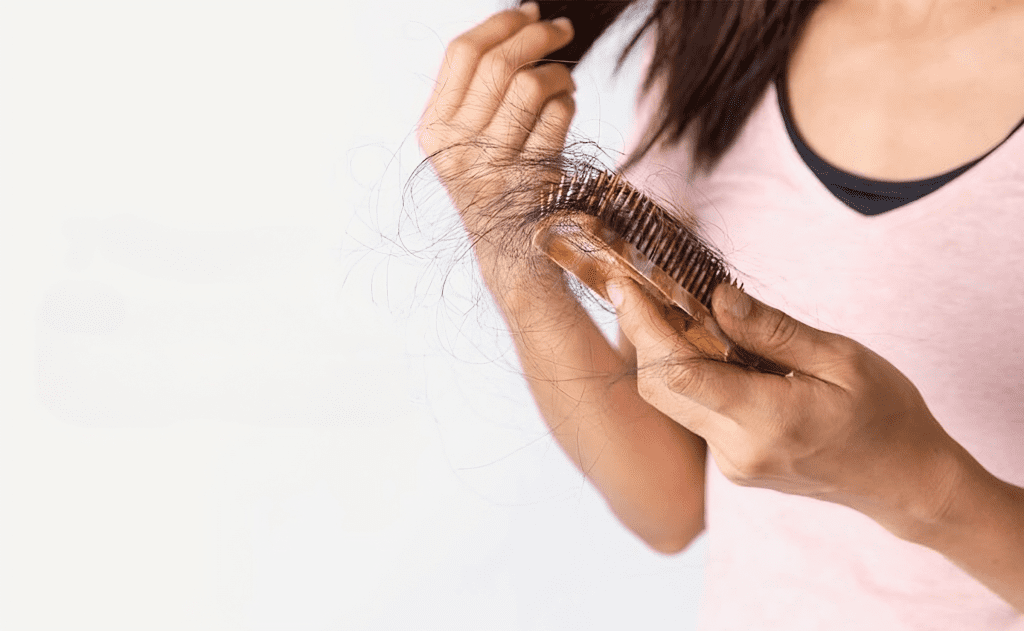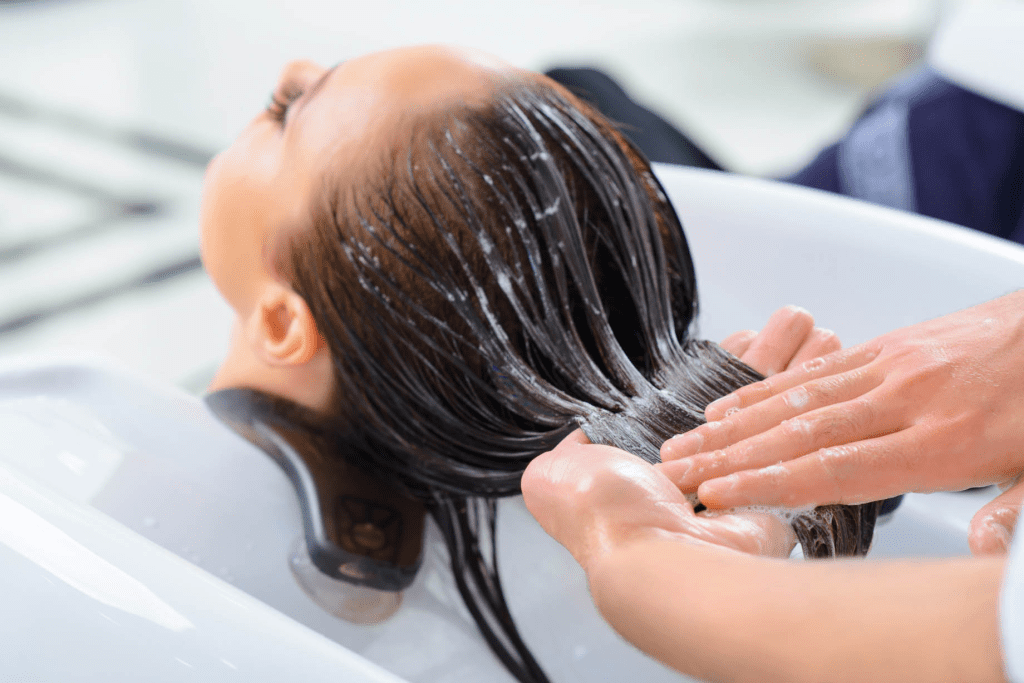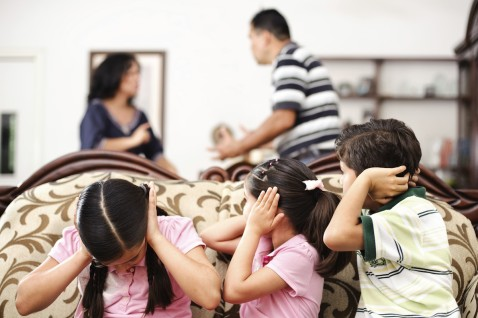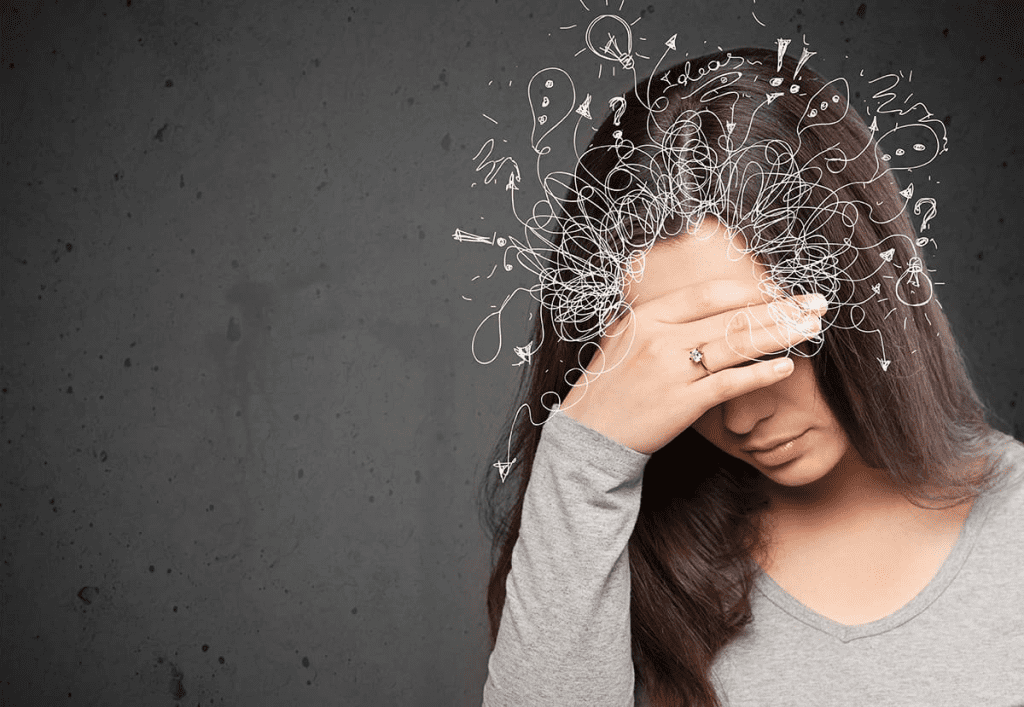Hair loss can be a stressful and challenging experience, especially when you don’t understand the causes. While some hair shedding is normal, excessive hair loss can signal underlying health or lifestyle factors. From hormonal changes to nutritional deficiencies, there are numerous reasons why women experience hair thinning or bald spots. Let’s explore the 12 most common causes of hair loss in women and what you can do to address them.

1. Pregnancy and Childbirth: A Hormonal Rollercoaster
It’s common for women to experience hair loss postpartum. During pregnancy, hormone levels keep the hair in a prolonged growth phase, resulting in fuller locks. However, after childbirth, hormonal shifts cause the hair to enter the shedding phase all at once, leading to significant hair loss within a few months of giving birth.
Don’t worry—this shedding is temporary. Your hair will likely start to grow back as your hormones stabilize.
2. Genetics: The Inescapable Factor
Genetics plays a huge role in hair loss. Androgenetic alopecia, commonly known as female-pattern hair loss, is an inherited condition that can start as early as your 20s or 30s. If you have a family history of hair thinning or baldness, you might be more prone to experiencing it yourself.
To tackle genetic hair loss early, focus on scalp care, a balanced diet, and consult with a dermatologist about possible treatments.
3. Poor Scalp Health: Inflammation and Buildup
Healthy hair starts with a healthy scalp. Infrequent washing, product buildup, and untreated dandruff can block hair follicles, causing inflammation and eventually leading to hair thinning. Chronic scalp conditions, such as psoriasis, can also worsen hair loss if left untreated.
Regular scalp cleansing and exfoliation can help keep your follicles open and promote healthier hair growth.
4. Underlying Medical Conditions: More Than Just Hair
Your hair loss may be a symptom of a larger health issue. Thyroid imbalances, Polycystic Ovary Syndrome (PCOS), and autoimmune diseases can all affect hair growth. Conditions like diabetes, which affects circulation, can also contribute to scalp health problems, impacting your hair’s ability to grow.
Treating these underlying health issues with the help of a doctor can reverse hair thinning and restore growth.
5. Aggressive Hairstyles: Less is More
If you love tight ponytails, braids, or weaves, you may unknowingly be causing Traction Alopecia—hair loss from repeated tension on your hair follicles. This can cause permanent damage over time if not addressed.
Switching to looser hairstyles and using gentle hair accessories like silk scrunchies can prevent further hair loss from aggressive styling.
6. Heat and Chemical Treatments: The Silent Destroyers

Excessive use of heat tools and chemical treatments like bleaching can wreak havoc on your hair, making it more prone to breakage. Heat damages the hair shaft, while frequent chemical processing can weaken your strands.
To prevent breakage, minimize heat styling, use heat protectants, and talk to your stylist about gentler coloring options like balayage.
7. Vitamin Deficiencies: Hair’s Hidden Enemy
Your hair needs certain nutrients to stay healthy. Vitamin B12, biotin, folate, and iron are crucial for hair strength and growth. A deficiency in these vitamins can lead to hair thinning and breakage. Vegetarians, vegans, and individuals on restrictive diets are more prone to these deficiencies.
Incorporating a balanced diet or taking supplements, such as Nutrafol, which is specifically designed to improve hair health, can help restore nutrient levels.
8. Lack of Protein: A Diet Dilemma
Protein is a building block for your hair. Without sufficient protein in your diet, your body may prioritize other essential functions over hair growth, leading to hair thinning. This is especially common among vegans and vegetarians who may not get enough protein through plant-based sources.
Ensure your diet includes adequate protein from sources like beans, lentils, tofu, or lean meats to maintain strong, healthy hair.
9. Physical or Emotional Trauma: Stress in Disguise

Stressful events, whether physical or emotional, can trigger a condition called Telogen Effluvium. In this condition, stress sends hair into a resting phase, causing it to shed more rapidly than usual. The hair loss may not appear until three to five months after the stressful event, making it difficult to pinpoint the cause.
The good news is that Telogen Effluvium is temporary, and once the stress is resolved, your hair should grow back.
10. Hormonal Changes: More Than Just Postpartum
Hormonal changes don’t just occur during pregnancy. Menopause, birth control changes, and hormone therapy treatments can all cause shifts in your body’s estrogen and progesterone levels, leading to hair thinning or shedding, especially around the hairline.
Balancing your hormones with medical advice can help reduce hair loss and promote regrowth.
11. Chronic Stress: An Invisible Culprit

Long-term stress can take a serious toll on your hair. When your body experiences prolonged stress, it redirects energy away from non-essential functions like hair growth. This leads to hair thinning and even bald patches if left unchecked.
Managing stress through techniques like meditation, exercise, or supplements such as Ashwagandha can help lower cortisol levels and promote healthier hair.
12. Medications: A Necessary Trade-off
Certain medications, such as those used for chemotherapy, blood pressure, and depression, can cause hair loss as a side effect. In many cases, once you stop the medication, your hair may grow back, but long-term use of these drugs can result in permanent hair thinning.
If your medication is affecting your hair, talk to your doctor about possible alternatives or treatments to help mitigate the effects on your hair follicles.


